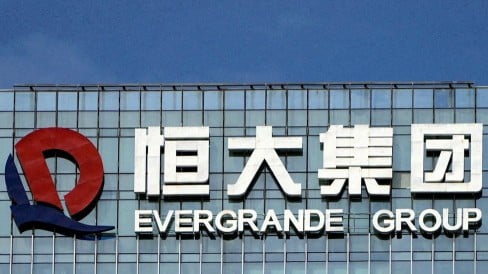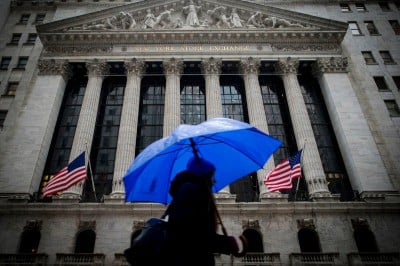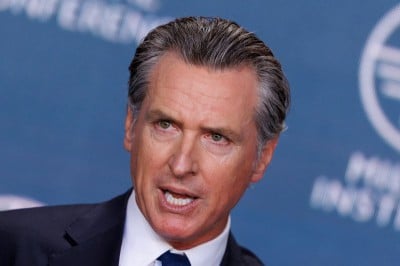Evergrande shares slide as mainland unit misses debt payment

Shares in China's Evergrande have slumped as the crisis at the embattled property developer has deepened.
Its mainland unit Hengda Real Estate has defaulted on 4 billion yuan (拢449m; $547m) of debt, it revealed on Monday.
Beijing-based news outlet Caixin has also reported that several current and former Evergrande executives have been detained by authorities.
Former chief executive Xia Haijun and an ex-finance boss Pan Darong were among those held, Caixin said.
The BBC has been unable to independently confirm Caixin's reporting. Evergrande did not immediately respond to a request for comment from the BBC.
Its share price fall on Tuesday followed an even sharper decline the previous day. Evergrande's stock has fallen by more than 25% this week.
Earlier this month, members of staff at Evergrande's wealth management unit were detained by police in Shenzhen, southern China.
In a post on social media police called on the public to report any cases of suspected fraud.
In the week prior to that, authorities announced that Evergrande's insurance arm would be taken over by a newly created state-owned insurer.
"The latest news will likely make it more challenging for Evergrande to pull off its restructuring," Eveline Danubrata from REDD Intelligence Asia told the BBC.
Evergrande also faces a court hearing in Hong Kong on a winding-up petition which could potentially force it into liquidation. The hearing, which was scheduled for July, is now due to take place on 30 October.
"Creditors may think twice about approving a restructuring proposal that includes a repayment plan over a long period of time if they're concerned about the company's ability to survive," Ms Danubrata said.
With more than $300bn (拢246bn) of debts, Evergrande has been at the centre of China's property debt crisis. Several major developers have defaulted over the past year.
Most of Evergrande's debt is owed to people within China, many of whom are ordinary citizens whose homes have not been finished.
These onshore debts are large, but the company has significant flexibility in renegotiating how long it has to make the repayments.
In terms of survival, its big concern is the$31bn owed to creditors outside of China who bought bonds from Evergrande.
Evergrande defaulted on its debts two years ago and has been working on a new repayment plan ever since.
The company seemed to be moving closer to resolving the problem after it filed for US bankruptcy protection in August.
Its latest plan was to reissue its overseas debt as new bonds that it had to pay back in about 10 years' time, as well as offering their creditors stakes in the company as shares.
However, its latest problems have put its turnaround plan into serious doubt.

